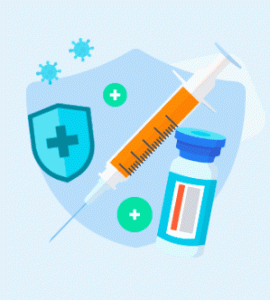Single-Dose HPV Vaccine May Help Wipe Out Cervical Cancer Globally
The Human Papilloma Virus (HPV) vaccine offers significant protection against cervical cancer, seeing that HPV is its primary cause. The HPV vaccine schedule depends on when you got your first dose. You might need 2 or 3 doses. Now, recent reports suggest that a one-dose HPV vaccine is also highly effective. Here’s what you need […]








































